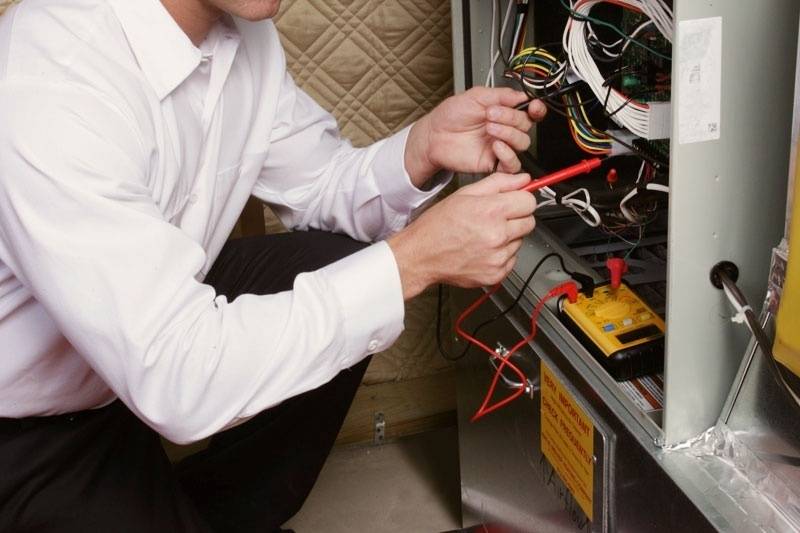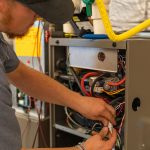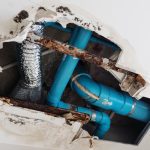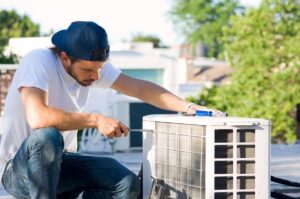
Furnaces push a lot of air via ductwork. You can anticipate some noises from the airflow and the moving parts. Nevertheless, unique sounds like scraping, slamming, whistling, and popping could indicate a dirty gas burner. That could also indicate a broken heat exchanger or a loose part.
We’ve compiled a list of loud furnace noises and what they mean. If the noises continue, professional troubleshooting may be necessary.
Banging noises
Loud banging or booming sounds can be a sign of a furnace problem. A tiny gas explosion that occurs when there is an ignition delay could be the source. Additionally, gas can accumulate in the combustion chamber. In this case, your furnace’s gas burners won’t ignite promptly.
Gas burners not igniting effectively could indicate a blockage or an issue with the gas pressure. However, repairing a gas burner without a qualified specialist is not a good idea. Disassembling the burners or heat exchangers may result in a gas leak. So, engaging experts for furnace repair in Calgary is advisable.
Clunking, rumbling, and rattling
A well-functioning furnace should not produce peculiar sounds. Rattling, clunking, or rumbling noises signal a problem. A broken heat exchanger or a loose or damaged component are the two main causes.
The best action is to inspect the unit for loose or damaged parts. This is a simple and affordable solution. However, it is advisable to replace the unit if the noises are coming from a fractured heat exchanger.
Popping sounds
When a heating cycle begins, the blower motor sends warm air into your home’s air ducts. Air duct inflation causes a loud popping sound when your furnace turns on. As the warm air enters the cold air ducts, the metal will grow to accommodate the temperature shift.
On the other hand, polluted gas burners in the furnace can cause a popping sound. As your home’s furnace ages, silt will begin to build up on the burners. If you don’t clear out the debris from the gas burners, your heat exchanger will accumulate a lot of gas and develop holes.
Whistling
Whistling is never a typical furnace sound. The sound suggests that ventilation is constrained. The most frequent cause of problems with airflow is a filthy air filter. Another reason could be a broken duct.
Sometimes, attempts to control temperature output could result in whistling sounds. For instance, you might shut off the vent if you don’t want heat in a particular room. The vent might not seal completely. This lets some airflow through and produces a whistling sound.
Knocking
Knocking sounds are typically used as a catch-all term for noises. The knocking sounds from the furnace cabinet or ductwork during a cycle’s first warm-up or cool-down stage are common or reasonably expected. Additional potential reasons for the noise include:
- Fragments or loose components
- An unclean air filter
- Debris
- The absence of insulation
FINAL WORDS
Furnace sounds could be a sign of trouble or nothing. A repair technician can determine the cause of persistent noises to ensure your furnace continues to function well.








